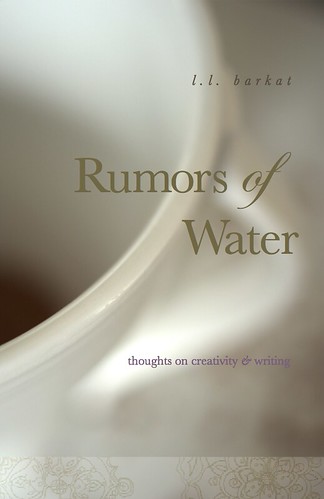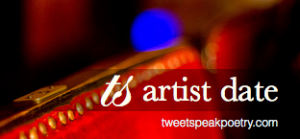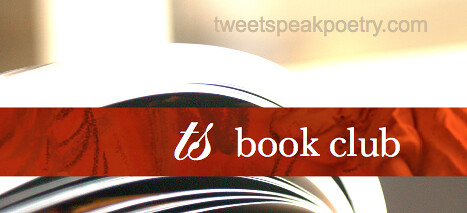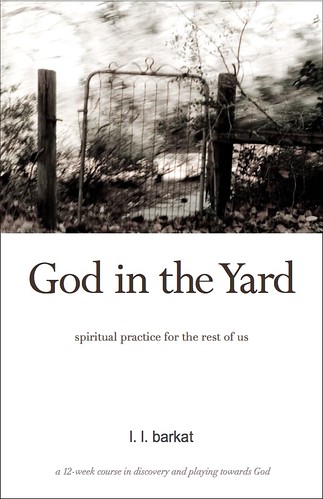Speaking of Faith

I admit I'm only in chapter 2, but I already love Speaking of Faith. The final test of my enthusiasm will be if I finish the book (which as I've mentioned before is a rare thing for me to do).
Tippett grabbed me in the first chapter, saying, "I believe what most Americans want, whether they are religious or not, is for the religious voice in our public life to be more constructive— to reflect the capacity of religion to nourish lives and communities." (p.2)
Though "some say... that religious passions are the cause of our culture's worst divisions, and a threat to democracy here and abroad", Tippett asks us to consider the truth that is "more broadly and deeply rooted in the human psyche and spirit." She describes this truth as a "tapestry unfurled, both ancient and in progress like the whole of creation... that arguments cannot contain." (p.4)
These words resonate with me. I can and sometimes do engage in argument for religion (argument in the formal sense of the term, not meaning "quibble"). Argument has its place. But there is so much more than argument through which to explore the claims and nuances of religious experience.
I think this is why I was so taken with that picture in Chronicles, of the full spectrum of players needed to "show" and "declare" the glory of God. Because, as it goes, some of the greatest speech on faith is not speech at all.
Nature's Abstract photo by Sara B. Used with permission.
Labels: art in religion, Chronicles, Krista Tippett, Speaking of Faith















15 Comments:
I believe that in this country we've lost the art of constructive disagreement and public discourse. It's most evident in politics and religion. (Perhaps that's part of the appeal of Obama and also McCain?)
I've just started reading Tim Keller's Reason for God which takes an approach of civil, reasonable discourse when discussing the merits of the gospel. It holds great promise - I'll share more as I go along.
hey, i've been seeing this book all over the place. cool to learn that you're reading it and loving it so far.
i'm not sure if this has anything to do with what you intended by this post, but the quote from tippett about americans wanting the religious voice in public life to be more constructive and to reflect its capacity to nourish lives made me remember a headline i saw last week about a pastor who had endorsed mccain. his reasons were mccain's support of relations with israel and his views on abortion. it made me react a bit more than i expected it would, and i was trying to figure out why it upset me.
soon i realized that i was upset because of the impression it gives the rest of america about what seems to matter most to christians when electing a president . . . when there are a HOST of other issues that are important to us and there are a HOST of other matters that a president must attend to in order to make this world keep going round.
by the way, i didn't post that comment to start a political conversation or to give the impression of any support or lack of support for a particular candidate. the comment was merely meant to express how much broader the christian expression and concerns in the world is from what some of these endorsements from pastors imply.
Tippett's name came up today and I wonder if what my friend said about Emergents applies to her. "They are not so suspicious of truth, as much as the messengers and the method. I'm interested to learn more about her through your reaction to the book."
Every Square... I'm trying to think about a time when we had it and what that looked like. I also have this amusing picture in my mind of the English and how they literally argue and shout in their government sessions. It does bring to mind the question of what constructive disagreement actually is. Looking forward to your discussion of Keller.
Christianne... I actually learned of it after I took my own advice and started frequenting publisher blogs. Tippett had done a blog post about the book on Penguin's site and I liked what I saw. So I ordered it from the library immediately. At the time, I had no idea it would be a book we'd see all over the place. :) As for politics, it's an interesting side conversation, and I didn't mind you bringing it up. Indeed, I suspect Tippett had politics in mind at least partly. More on that in chapter 2 when she discusses Niebuhr.
Craver... Oh, wonderful. You are giving me a reason to keep reading! (Because, when reading is a together thing, I'm more likely to finish. :)
I have to admit, I admire religion when it can help to build communities and understanding without trying to create divisions. You can recognise it, sometimes -- a person whose religion obviously inspires them to reach out to others and think regularly about what it means to be a good, caring person. It's quite distinctive. Actually, it's something I'd like to learn how to build in an atheist context (I'm aware even as I speak that some of you are probably convinced of the impossibility of that, depending on your theology, but, please, take no offence. Imitation is the sincerest form, and all that).
I really like Krista Tippett's Speaking of Faith, which I listen to rather regularly (often downloading). I'd like to read the book as well, having heard her read some of it on the program.
I like the quotes you lift from her here. We need more of this voice and hearing of others. She has thought for some time on issues related to faith and the world, and one can learn from her.
Lynet... what do you think it would take to build such an atheist community and hold it together? Is there a particular figure or figures and history or histories you could look to for inspiration and guidance?
Ted... yes, I continued in my reading last night, and so far (still) I'm liking the book quite a bit. She has incredible grace and clarity and an interesting personal story.
The "truths" of the Christian Faith (or any faith) should not be bound by nationality or time. If they are true they should be true for Americans and South Africans and Chinese and Hungarians and so on...They will be as true a thousand years from now as they were a thousand years ago. I think this idea distills out passing fancies of what "Faith" is and is not.
Reading through these comments, I was struck by christianne's quasi-retraction. What is it about our culture that we can't even hint about how our faith applies to our politics?
Why do we pretend so much of our political motivation is based on moral superiority and righteous indignation? BOTH sides do this!
For me, argument is usually an unhealthy form of competition. It descends into mere rivalry instead of driving the whole group toward excellence the way healthy competition does.
LL -- So glad you are reading this book and sharing it with all of us. I was struck by the quote about truth being both ancient and in progress, just like creation. I find this every time I read the Bible. I definitely believe that truth is absolute, but I also believe it is always progressing in how we interpret it and apply it to our lives and culture. Tippett has expressed this reality so beautifully.
l.l. - this sounds like an engaging book; i love it when a text can take me beyond my own way or more common ways of thinking about things & teach me to view it & consider it from an altogether different vantage point.
i don't think i commented on the "go ahead, artist, prophesy" post, but that one resonated with me deeply. i think it is true that many perspectives are needed where the God (who is infinite!) & faith (which is never static & rarely predictable) are concerned.
thank you.
LL -- I am the "anonymous" commenter above. Not sure how I did that, but when I read that person's comment, I thought, "hey, that sounds like my comment," and then realized it was. I must not have been signed in. Apologies, apolgies.
Charity
Lynet (again)... I think I asked that not quite the way I meant to. I meant to ask what figure/s and history/ies atheists might look to (from their own tradition) when considering how to enrich lives and communities.
Kim... so do you agree or disagree with Tippett's statement about truth being unfurled and in progress? Curious.
Mark... why do you think we do this? (the faith politics thing). And do you see any place for argument in the more formal sense?
Charity... oh good! I always feel odd when someone comments anonymously. But it was you. :) Truth seems to have layers, doesn't it? I'm thinking this, as you say we keep applying it in new ways.
Kirsten... I saw that other post and this one as coming together so nicely. Our culture tends to emphasize that truth can only be declared in words. There's a place for words (of course I would think so:) but they're not the whole story. Much of what Tippett says is beautifully expressed. I look forward to seeing what the rest of the book brings (I'm thinking there may be some surprises).
LL, I guess in some ways I fall into the Pontius Pilate camp when it comes to "truth," when he says "Truth? What is truth?"
Are truth and faith oxymorons? In other words, if I "know" something to be true, would I have to employ faith to believe it?
I might use the term "unfurling" as opposed to "unfurled." In the end, I think very, very little of what we comprehend distills to "truth" and we all struggle to describe truth in a way that is universally agreed to, much less manifest it in our lives.
As far as "argument" goes, I agree with Mark that it descends into rivalry.
That all sounds very negative and I don't mean to come off that way! The pursuit of "truth" is always worthwhile and should consume us! And THAT'S the truth!
Post a Comment
<< Home